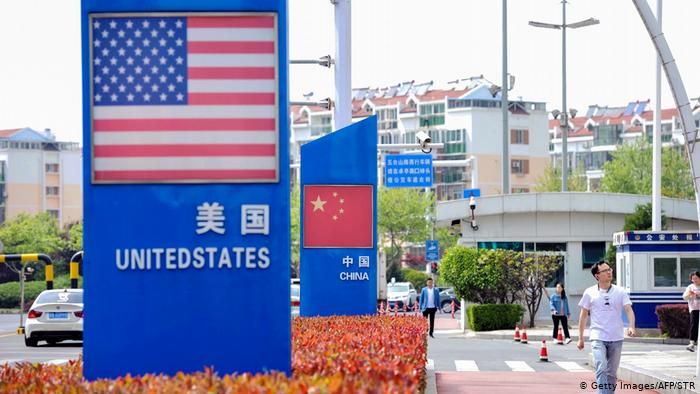
US imposes increased tariffs on Chinese goods, despite talks
Washington has ramped up tariffs on Chinese imports, despite talks aimed at easing economic tensions with Beijing. China has already threatened retaliation.
US President Donald Trump's increased tariffs on $200 billion (€178 billion) of Chinese goods entering the United States took effect on Friday.
Advertisement
Consumer products — including cell phones, computers, clothing and toys — are especially targeted by the tariff rate increase from 10% to 25%.
China's Commerce Ministry expressed its "deep regret" and warned that Beijing will not "capitulate to any pressure." Without elaborating, it threatened to take "necessary countermeasures."
Tension between the US and China has heightened after the White House accused Beijing of watering down commitments to trade reform — a claim strongly rejected by China.
Talks continue
Chinese Vice Premier Liu He, US Trade Representative Robert Lighthizer and US Treasury Secretary Steven Mnuchin talked for 90 minutes on Thursday. Officials did not speak to reporters as they left but, following the talks, Trump held a meeting with Lighthizer and Mnuchin.
Liu He told Chinese state television that he had come to the talks "with sincerity" but that they had "run into some problems."
Negotiations to rescue a trade deal will conclude Friday.
Trump announced the tariff hike on Sunday, expressing frustration with the pace of the talks.
While the US president said a trade deal was still possible — adding that he had received a "very beautiful" letter from Chinese President Xi Jinping — he repeated his warning.
"I am different than a lot of people," Trump said. "I happen to think that tariffs, for our country, are very powerful."
Markets rattled
The possibility of an escalation in the dispute has rattled stock markets around the world.
Read more: Trump's China threat is about more than just trade
Philip Wee, of the Singapore-based DBS Bank, warned in a report that a tariff hike and a breakdown in talks meant that "risks of a financial market collapse, extreme risk aversion, and sharp slowdown in global growth will spike."
Washington has demanded significant reforms to the Chinese economy, such as subjecting state enterprises to market principles, a reduction of massive subsidies and curbing the alleged theft of US intellectual property.
rc/rt (AFP, AP, Reuters)




